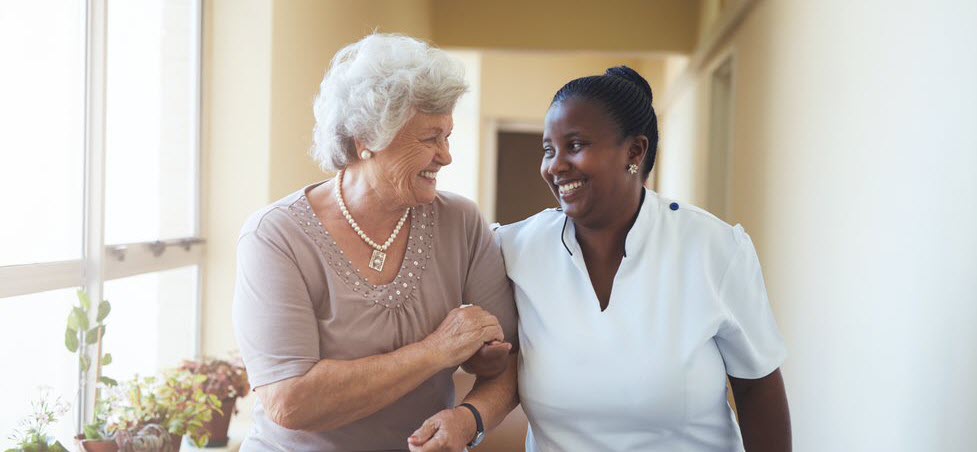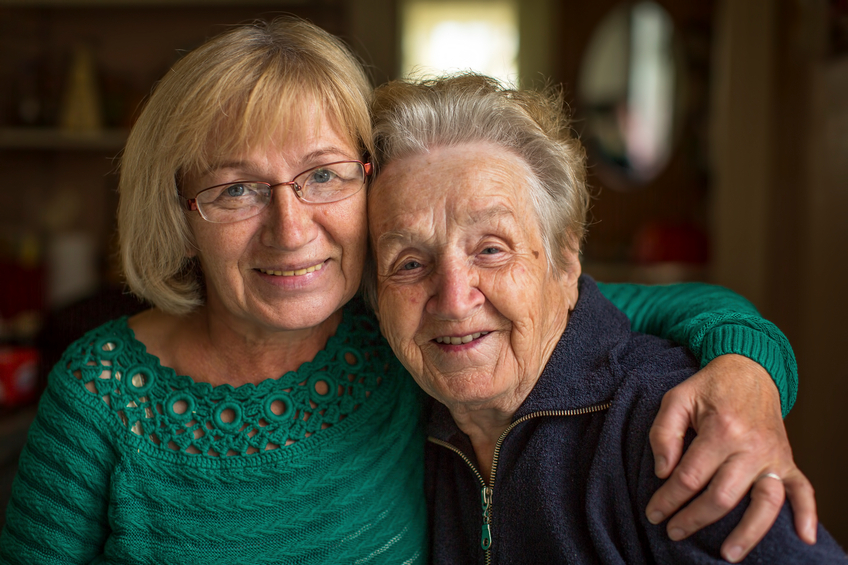In-Home Care Services Help Seniors with Diabetes

Diabetes is an ongoing health crisis in the United States. According to the American Diabetes Association, over nine percent of the population have some form of the disease, and incidence among seniors is even higher at 25 percent. Treating diabetes can be an onerous routine requiring careful monitoring, and it is essential that you understand the level of home care your loved one will need.
Diabetes is a factor in 252,806 deaths annually in the U.S. and costs $327 billion in medical expenses per year. By 2050, studies estimate that incidence of diabetes will rise by 165 percent, cases in senior women will increase by 270 percent and cases in senior men by 430 percent.
There are two primary forms of diabetes. Type 1 diabetes, although sometimes known as juvenile diabetes, can happen at any age. It causes the body to stop producing insulin, so it can't get glucose from the bloodstream to the cells of the body. Around 40,000 people per year are diagnosed as a type 1 diabetic. Type 2 diabetes causes your blood sugar to rise higher than normal, and eventually the pancreas can't produce enough insulin to control blood sugar level. While type 1 requires treatment by insulin, type 2 diabetes can often be treated by exercise and a healthy diet.
Symptoms of Diabetes
Diabetes can develop at any stage of life, so it may be helpful to know common symptoms. According to the Mayo Clinic, these include:
- Urinating often
- Feeling very thirsty
- Extreme hunger
- Fatigue
- Blurry vision
- Cuts/bruises/sores that are slow to heal
- Unexplained weight loss - even if you are eating more
If your senior loved one shows signs of these indicators, consult a healthcare professional. A doctor will most likely order a test that will show their blood sugar levels over the last few months.
Older adults can also be more likely to suffer complications from diabetes, including lower-extremity amputation, myocardial infarction, visual impairment and renal failure. They are markedly more likely to have to visit an emergency room due to hypoglycemia.
Treatment of Diabetes for Elderly Adults
One of the significant issues for seniors with diabetes is that the treatments for both type 1 and type 2 diabetes are very reliant on routine.
 In type 1 diabetes, the doctor will likely require your elderly loved one to monitor blood sugar levels up to four times a day. This may be done via pinprick blood tests or a continuous glucose monitor.
In type 1 diabetes, the doctor will likely require your elderly loved one to monitor blood sugar levels up to four times a day. This may be done via pinprick blood tests or a continuous glucose monitor.
Type 1 diabetes is treated by synthetic insulin, usually administered by syringe or an injection pen. A pump the size of a cell phone may also be fitted to the outside of the body with a catheter connecting a reservoir of insulin to the body. The pump will either administer small doses of insulin constantly or larger doses as and when the body needs it.
Type 2 diabetes generally requires less blood testing, but still needs careful monitoring. While some people might still require insulin treatment, oral treatment with drugs like metformin might be possible. In less severe cases, it may be possible to manage a senior’s diabetes with a healthy diet and physical exercise. The American Diabetes Association recommends that everyone with diabetes stick to a healthy diet including:
- Plenty of fruit and vegetables
- Lean protein
- Less added sugar
- Low fat (and no trans-fat)
- Vitamins, minerals and fiber
Physical activity is equally as important as a healthy diet since any type of exercise lowers blood sugar. The American Diabetes Association recommends:
- Aerobic exercise (such as walking or swimming)
- Strength training (like using weights or resistance bands)
- Flexibility exercises (such as yoga or Pilates)
- General daily activity (like taking the stairs instead of the elevator)
Home Care Can Help Seniors Manage Diabetes
Since all treatments for diabetes are so reliant on routine and careful monitoring, it can be hard for seniors to stay on top of the illness. Medication adherence can be difficult for older people, particularly if they are suffering from mental decline such as dementia. Diabetes, with its constant monitoring requirements and the necessity for self-administration of insulin injection, is an arduous routine for anyone, not just seniors.
Even eating healthier and exercising regularly can be challenging. Preparing fresh, healthy meals requires more preparation than processed, unhealthy foods. Exercise can be difficult if the senior has mobility issues. The risk of falls is also an unwanted consequence of additional exercise for a senior. Falls can lead to serious health risks for older people, so it’s important that they exercise in safe conditions, under supervision if necessary.
The stress of managing diabetes doesn’t always fall on the senior themselves. Consider this example from someone caring for a loved one with diabetes. Ryan’s grandfather had type 1 diabetes: As the grandfather aged, the responsibility for monitoring his blood sugar and ensuring he ate well fell less on him and more on his wife.
"My grandmother was the one who managed his blood sugar levels and administered his insulin; it was uppermost on her mind. There's a running joke in the family that they were late to the hospital when I was born because she made him stop for a snack on the way."
That’s what’s most important here. You must understand that caregiving is a colossal task by itself, but acting as a caregiver for a loved one with diabetes can be a job you’re just not ready to handle. Moreover, it's not enough to just let Mom keep caring for Dad. Seniors who act as caregivers for a spouse face increased health risks themselves.
Professional home care could be an option to help with the care of a diabetic loved one. Visiting Angels Newton/Canton provides HHA and CNA-certified caregivers for diabetic seniors who can visit your loved one and can help with the management of diabetes. If your loved one needs insulin therapy, the caregiver can offer reminders of when to check blood sugar and when to administer insulin. If your loved one needs help with preparing healthy meals or supervision to allow them to exercise safely, our professional home care aides can help with that too.
Contact us today at 617-795-2727 for a free initial consultation!
About Visiting Angels Newton/Canton:
Visiting Angels Newton/Canton MA is an award-winning local home care agency providing high caliber in-home care services to elderly and people with disabilities. Countless families have benefited from our dementia home care, Alzheimer's care, companion care, respite support, transitional aid, and senior home care services in Needham, Dedham, Brookline, Chestnut Hill, Wellesley, Newton, Canton, Westwood, Watertown, Natick, Stoughton, Roslindale, Norwood and nearby towns. While non-medical in nature, the care provided by Visiting Angels Newton/Canton can make a big impact on your loved one's happiness and quality of life.

